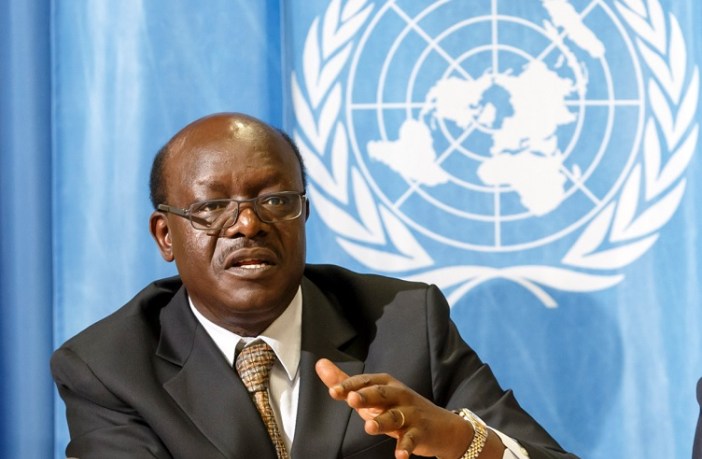By Akanimo Sampson
Secretary-General of the United Nations Conference on Trade and Development (UNCTAD), Mukhisa Kituyi, says boosting the digital economy in developing countries will require a new way of thinking, including from entrepreneurs.
This is as the transformative power of the digital economy is real and impactful. Without a doubt, improving their fortunes requires a mindset change.
Going by emerging projections, in 2035, one-third of the global workforce will be in Africa. Today, about 85% of people on the continent are working in the informal sector.
According to Kituyi, while many Small and Medium Enterprises (SMEs) in developing countries have yet to switch to digital technologies, a digital transformation is happening across Africa, led by SMEs and young entrepreneurs who are willing “to take a risk and pioneer new business models as game-changers.”
Take the story of Leah Uwihoreye, a Rwandan computer engineer, who founded Made in Rwanda, an e-commerce platform connecting women artisans to online markets.
She started the business after visiting her family’s village and realizing that many women were producing unique high-quality pieces of handicraft, but only selling them to the few foreign visitors who would sporadically stop by the village.
While these sales represented a key source of earnings for the women, the income was not enough to provide for a sustainable livelihood. “I believe that technology is a powerful tool to lift people out of poverty,” says Ms. Uwihoreye.
In addition to her managerial role in the start-up, Ms. Uwihoreye is helping others harness the power of technology.
She trains women from remote areas of Rwanda to become computer literate and delivers regular talks to female university students to encourage them to embrace the digital economy.
And in South Africa, Basson Engelbrecht founded Hoorah, also an e-commerce platform.
“We aim to empower African entrepreneurs, including rural and informal vendors, by providing to them an online platform to sell, grow and expose their businesses,” he said.
As e-commerce remains a relatively new concept to many, offering such services to small and informal vendors comes with some challenges.
“We had to make an extra effort to understand the constraints the vendors face, such as the lack of digital literacy and business management skills, to develop a service that would enable them to use our platform,” Engelbrecht said.
Ms. Uwihoreye and Engelbrecht are part of a cohort of 122 entrepreneurs in the digital and technology space who operate open platforms related to e-commerce, logistics, fin-tech, big data or tourism.
They joined the eFounders Fellowship Programme, a partnership between UNCTAD and the Alibaba Business School, which was launched in 2017 to mentor 1,000 entrepreneurs from developing countries over a period of five years to empower them to become champions for the new economy.
The programme started when Jack Ma, Alibaba Group’s founder, and former chairman, became UNCTAD’s special adviser for young entrepreneurs and small businesses.
It offers a unique learning experience about the transformative impact of e-commerce and technology as well as follow-up sessions on lessons learned, including a two-week stay at the Alibaba Business School campus in Hangzhou, China, with site visits.
“The course was a mind-blowing two weeks,” said Derrick Muturi of Herdy, a Kenyan e-commerce platform that handles orders, payments, and logistics for small-scale farmers and their customers. His key take-away lessons were the importance of having a clear vision and a business culture, alongside long-term planning and networking.
Since the inception of the programme two years ago, the businesses of the 122 fellows spread over 17 African countries have created 3,400 direct jobs on the continent and generated US$100 million in annual revenues. And these numbers are growing.
Some of the fellows, joined by other young entrepreneurs from the continent, gathered from 15 to 17 November in Accra, Ghana, where they had a reunion and attended the Africa Netpreneur Conference as well as inaugural Africa’s Business Heroes Show.

